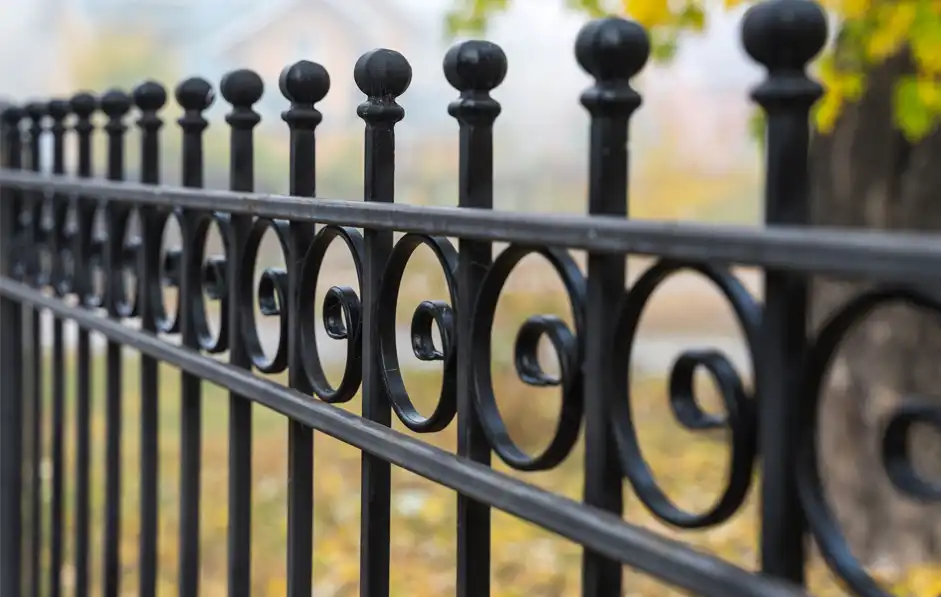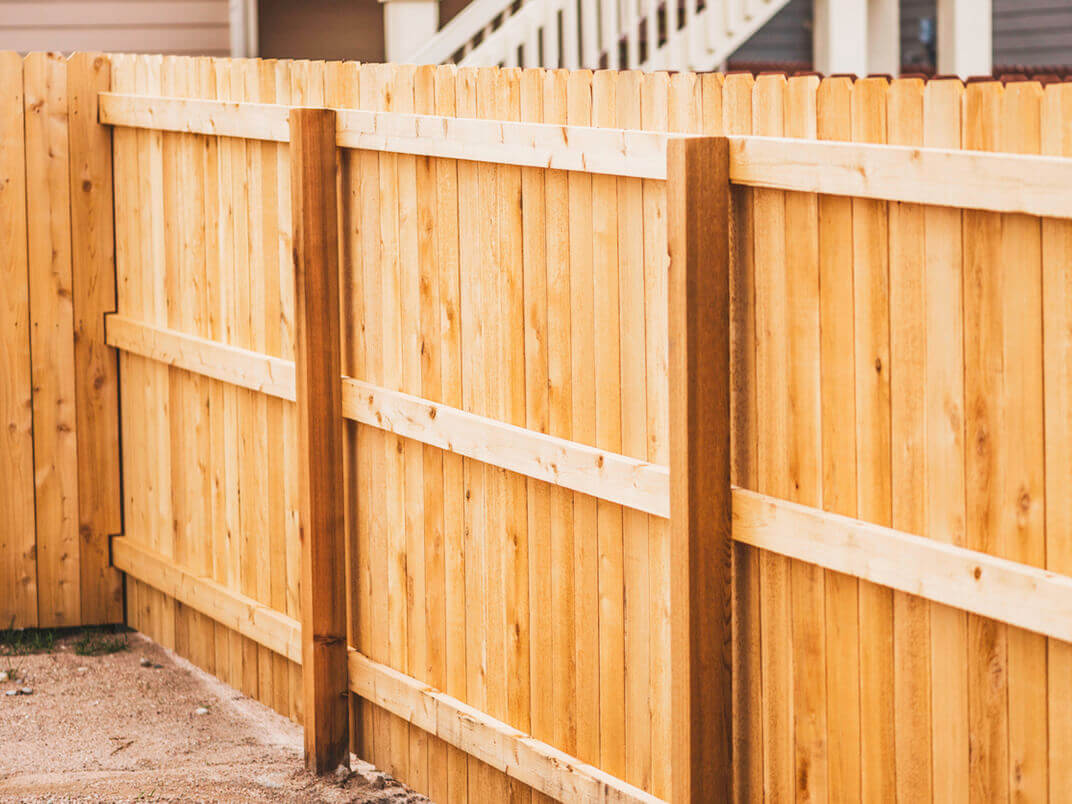Featured
If you're thinking about setting up a fencing around your home, recognizing the authorization demands in your location is important. In this guide, we'll damage down the various licenses you may need to mount a fencing and just how to guarantee your task stays compliant with regional legislations.
Why Are Allows Essential for Fencing Installation? Permits are required to make certain that the fence you construct adheres to regional structure codes, zoning regulations, and safety and security criteria. They make sure that the fencing won't obstruct energies, web traffic circulation, or develop threats for pedestrians.
![]()
Sorts Of Permits You Might Need. Structure License. A structure permit is the most usual need for setting up a fencing. If your fencing goes beyond a certain elevation (generally around 6 feet), you might need to acquire a structure authorization.
Zoning License. Zoning legislations govern land usage in your location, and they commonly control where fencings can be mounted, as well as how tall they can be. A zoning authorization guarantees that your fence abides by these laws. Your fence could need to be established back a particular distance from pathways or residential or commercial property lines. Zoning regulations can differ by area, so it's essential to examine the specific regulations that put on your area.
Homeowners Organization (HOA) Authorization. You might require approval before mounting a fencing if your building is part of a home owners organization. HOAs usually have stringent guidelines relating to the kind, style, and products made use of for fences to preserve an uniform look throughout the community. The HOA might need you to submit detailed strategies or request authorization prior to setup. See to it you adhere to these standards to prevent possible penalties or penalties.
Specialty Permits. In some instances, you may require specialty permits based on the place of your home or the nature of your fence. As an example, if your property remains in a flood area, you might need extra authorizations to ensure that your fence does not block drain or water flow. If you prepare to build a fencing near an environmentally protected area, you might require an unique permit to abide with ecological policies.
![]()
Utility Easements and Energy Business Approvals. Before mounting a fencing, you have to examine if your residential property has an easement. Developing a fence within an easement might conflict with utility upkeep or damages underground lines.
Exactly How to Figure Out Which Permits You Required. Contact Regional Authorities. The initial step in identifying the licenses called for is to contact your regional structure department or zoning workplace. They can offer specific details concerning what licenses are required for your location. Several cities have on the internet resources or sites where you can examine the demands or also make an application for an authorization online.
Get In Touch With an Expert Fence Professional. A regional fence service provider is typically aware of the authorization process and local guidelines. They can help you navigate the demands and guarantee that your task is certified. Numerous service providers also handle the license application process on your part, saving you effort and time.
Review Your Community's HOA Standards. Make sure to review their standards prior to using for any kind of licenses if you live in a community controlled by an HOA. The HOA may call for specific designs, products, or height constraints for fencings within the area. Send your strategies to them for approval before continuing.
![]()
Consequences of Not Getting an Authorization. Setting up a fencing without the called for authorizations can lead to major effects. Possible buyers may be reluctant to purchase a property with an unpermitted fence, specifically if it's in violation of zoning regulations.
Final thought. Before mounting a fencing on your home, make sure you understand the neighborhood policies and acquire any type of essential authorizations. Building authorizations, zoning licenses, HOA authorizations, and specialized permits all play an essential role in guaranteeing that your fence is secure, legal, and certified.
Why Are Allows Essential for Fencing Installation? Permits are required to make certain that the fence you construct adheres to regional structure codes, zoning regulations, and safety and security criteria. They make sure that the fencing won't obstruct energies, web traffic circulation, or develop threats for pedestrians.

Sorts Of Permits You Might Need. Structure License. A structure permit is the most usual need for setting up a fencing. If your fencing goes beyond a certain elevation (generally around 6 feet), you might need to acquire a structure authorization.
Zoning License. Zoning legislations govern land usage in your location, and they commonly control where fencings can be mounted, as well as how tall they can be. A zoning authorization guarantees that your fence abides by these laws. Your fence could need to be established back a particular distance from pathways or residential or commercial property lines. Zoning regulations can differ by area, so it's essential to examine the specific regulations that put on your area.
Homeowners Organization (HOA) Authorization. You might require approval before mounting a fencing if your building is part of a home owners organization. HOAs usually have stringent guidelines relating to the kind, style, and products made use of for fences to preserve an uniform look throughout the community. The HOA might need you to submit detailed strategies or request authorization prior to setup. See to it you adhere to these standards to prevent possible penalties or penalties.
Specialty Permits. In some instances, you may require specialty permits based on the place of your home or the nature of your fence. As an example, if your property remains in a flood area, you might need extra authorizations to ensure that your fence does not block drain or water flow. If you prepare to build a fencing near an environmentally protected area, you might require an unique permit to abide with ecological policies.

Utility Easements and Energy Business Approvals. Before mounting a fencing, you have to examine if your residential property has an easement. Developing a fence within an easement might conflict with utility upkeep or damages underground lines.
Exactly How to Figure Out Which Permits You Required. Contact Regional Authorities. The initial step in identifying the licenses called for is to contact your regional structure department or zoning workplace. They can offer specific details concerning what licenses are required for your location. Several cities have on the internet resources or sites where you can examine the demands or also make an application for an authorization online.
Get In Touch With an Expert Fence Professional. A regional fence service provider is typically aware of the authorization process and local guidelines. They can help you navigate the demands and guarantee that your task is certified. Numerous service providers also handle the license application process on your part, saving you effort and time.
Review Your Community's HOA Standards. Make sure to review their standards prior to using for any kind of licenses if you live in a community controlled by an HOA. The HOA may call for specific designs, products, or height constraints for fencings within the area. Send your strategies to them for approval before continuing.

Consequences of Not Getting an Authorization. Setting up a fencing without the called for authorizations can lead to major effects. Possible buyers may be reluctant to purchase a property with an unpermitted fence, specifically if it's in violation of zoning regulations.
Final thought. Before mounting a fencing on your home, make sure you understand the neighborhood policies and acquire any type of essential authorizations. Building authorizations, zoning licenses, HOA authorizations, and specialized permits all play an essential role in guaranteeing that your fence is secure, legal, and certified.
Latest Posts
New vs. Used Car Loans: Which is Right for You?
Published Dec 22, 24
1 min read
Unveiling the Secrets of Claridge’s Signature Dishes
Published Dec 22, 24
1 min read
Washington Fence
Published Dec 22, 24
3 min read